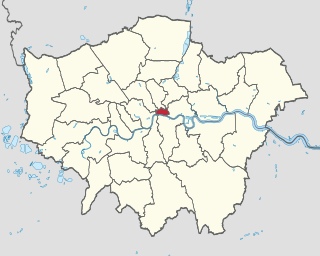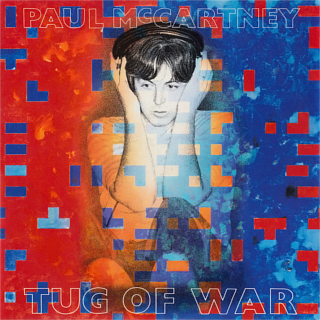
London is the capital and largest city of England and the United Kingdom, with a population of around 8.7 million. It stands on the River Thames in south-east England at the head of a 50-mile (80 km) estuary down to the North Sea and has been a major settlement for two millennia. The City of London, its ancient core and financial centre, was founded by the Romans as Londinium and retains its medieval boundaries. The City of Westminster, to the west of the City of London, has for centuries hosted the national government and parliament. Since the 19th century, the name "London" also refers to the metropolis around this core, historically split among the counties of Middlesex, Essex, Surrey, Kent, and Hertfordshire, which since 1965 has largely comprised Greater London, which is governed by 33 local authorities and the Greater London Authority.

The 1908 Summer Olympics were an international multi-sport event held in London, England, United Kingdom, from 27 April to 31 October 1908. The 1908 Games were originally scheduled to be held in Rome, but were relocated on financial grounds following the violent eruption of Mount Vesuvius in 1906, which claimed over 100 lives; Rome eventually hosted the Games in 1960.
At the 1908 Summer Olympics, a tug of war tournament was contested. Each team consisted of 8 athletes. Nations could enter up to 3 teams. The host Great Britain was the only one to enter more than one. Germany, Greece, Sweden, and the United States each entered one team apiece, though Germany and Greece withdrew. This left 5 teams from 3 nations to compete.

The City of London Police is the territorial police force responsible for law enforcement within the City of London, England, including the Middle and Inner Temples. The force responsible for law enforcement within the remainder of the London region, outside the city, is the much larger Metropolitan Police, a separate organisation. The City of London, which is now primarily a financial business district with a small resident population but a large commuting workforce, is the historic core of London, and has an administrative history distinct from that of the rest of the metropolis, of which its separate police force is one manifestation.

John James Shepherd was an English tug of war competitor who competed in the 1908 Summer Olympics, in the 1912 Summer Olympics, and in the 1920 Summer Olympics for Great Britain.
The tug of war contest at the 1912 Summer Olympics consisted of a single match, as only two teams entered the competition.

Tug of War is the third solo studio album by English musician Paul McCartney, released on 26 April 1982. It is his 11th album overall following the break up of the Beatles in 1970, his first album released after the dissolution of his band Wings the previous year, and his first album following the murder of his former songwriting partner John Lennon. The cover features an abstract oil painting by the artist Brian Clarke, a frequent McCartney collaborator, incorporating an overpainted transparency of a portrait of Paul taken by Linda McCartney.

John Joseph Flanagan was an Irish-American three-time Olympic gold medalist in the hammer throw, winning in 1900, 1904, and 1908.

Frederick Harkness Humphreys was a British tug of war competitor and sport wrestler who competed in the 1908 Summer Olympics in London, in the 1912 Summer Olympics in Stockholm, and in the 1920 Summer Olympics in Antwerp. He was also a constable in the City of London Police, collar number 970, as were two of his brothers.
Edwin Archer Mills was a British tug of war competitor who competed in the 1908 Summer Olympics, in the 1912 Summer Olympics, and in the 1920 Summer Olympics.

Albert Ireton was a British tug of war competitor and boxer who competed in the 1908 Summer Olympics.

Walter Chaffe was a British tug of war competitor who competed in the 1908 Summer Olympics and in the 1912 Summer Olympics.
James Michael Clarke was an Irish tug of war competitor who competed in the 1908 Summer Olympics.

Joseph Dowler was a British tug of war competitor who competed in the 1908 Summer Olympics and in the 1912 Summer Olympics.
Thomas Homewood was a British tug of war competitor who competed in the 1908 Summer Olympics. In 1908 he won the bronze medal as member of the British team Metropolitan Police "K" Division.

Alexander Munro was a British strongman, wrestler, and tug of war competitor who competed in the latter sport in the 1908 Summer Olympics and in the 1912 Summer Olympics.
John Sewell was a Scottish tug of war competitor who competed for Great Britain and Ireland in the 1912 Summer Olympics and in the 1920 Summer Olympics.
Harold "Harry" Joseph Stiff was an English tug of war competitor who debuted at the age of 38 in the 1920 Summer Olympics, and won the gold medal representing Great Britain, as part of the City of London Police. He later became a landowner of the Horse and Groom Public House, Cornish Hall End, close to Finchingfield, Essex.
George Walter Canning was a British tug of war competitor who competed in the 1920 Summer Olympics. In 1920 he won the gold medal as member of the British team. He was part of the City of London Police which he worked for until 1935.
Tilbury Douglas is a British construction business with its head office in London.








